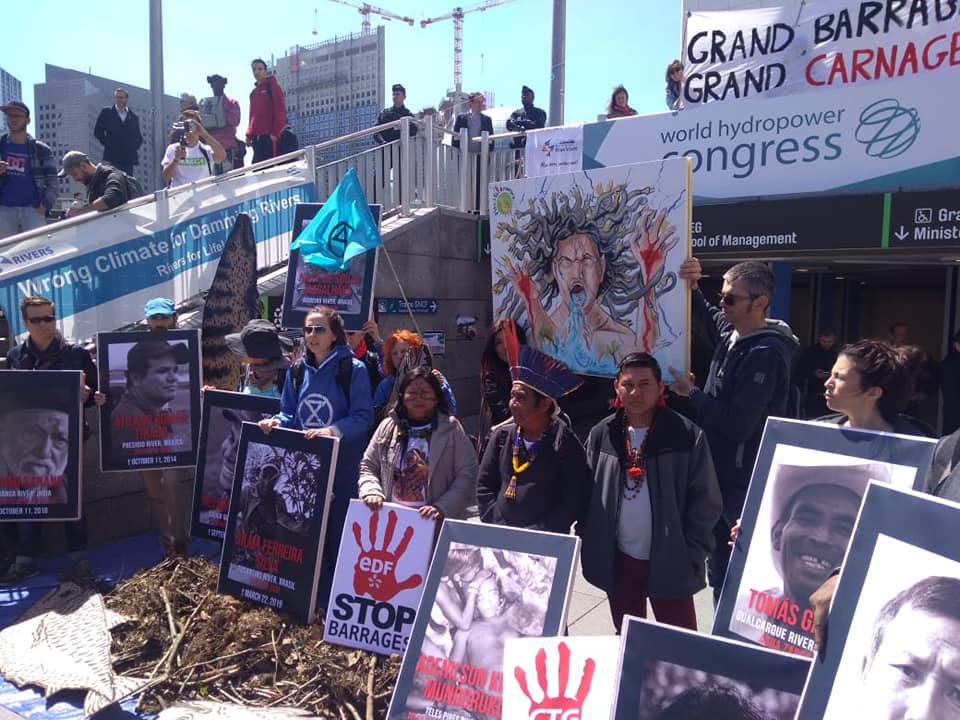
About 10 percent of all attacks on human rights activists that have occurred globally over the past five years took place in Colombia.
True, the ongoing Colombian conflict, well over a half century old, has recently seen violence decrease compared to even a decade ago, one key reason why the country has experienced a surge in tourism in recent years.
Recent events, however, can explain why many human rights activists — sometimes referred to as human rights defenders, or HRDs — in Colombia are vulnerable to violence and even death. The parties implicated in the intimidation, torture, rape and murder of activists will, at a minimum, raise a few eyebrows — and should motivate professionals such as supply chain managers to ensure their companies are not at risk of having ties to human rights violations.
Bottom line: Businesses are turning a blind eye to violence in Colombia
In a new report, the Business and Human Rights Resource Center (BHRRC) highlighted the role businesses play in aggravating attacks on activists across the nation of 50 million people.
“Weak state institutions, armed gangs and illegal economies contribute to making Colombia a dangerous place for human rights defenders,” said Michel Forst, U.N. special rapporteur on human rights defenders. “But what is often missed by this analysis is the role of legitimate business in aggravating attacks on defenders and businesses’ potential to contribute meaningfully to the protection of defenders, including enabling an environment for human rights protection.”
Around 90 percent of attacks that victimized human rights activists in Colombia were tied to only four industries: hydroelectric power, fossil fuels, mining and agriculture. Nearly half of the attacks on these citizens were against those who spoke up specifically against companies such as Ecopetrol, EPM, BG Salinas, Cerrejón Coal and AngloGold Ashanti. The report further highlighted the fact that the majority of HRDs who fell victim to violence were leaders and members of marginalized communities, union leaders, Afro-Colombian citizens and indigenous citizens.
BHRRC’s report serves as a dire warning to businesses in sectors such as coffee, freshly-cut flowers, mining and energy: Doing business in Colombia, or any nation rich in natural resources for that matter, makes it incumbent on corporate executives to do whatever they can to ensure their companies’ supply chains are ethical and have no ties to violence, particularly as investors turn a sharper eye to societal risk factors such as human rights violations.
Companies are failing human rights activists
While the BHRRC made sure to clarify it is not accusing specific companies of sponsoring attacks on human rights activists, it did point out the inadequate measures taken by companies to prevent violence.
As an example, the report highlights violations against the group Ríos Vivos Antioquia Movement, which opposes an embankment dam on the Cauca River under construction by the public utility EPM (Public Companies of Medellín). This project will have an impact on more than 300,000 people in 27 municipalities in the region. Because of its activism, the group was the target of a smear campaign that EPM allegedly funded, culminating in the shooting deaths of two members in September 2018.

Photo: Ríos Vivos activists protest a proposed hydropower project.
In a response, EPM expressed condolences and acknowledged the utility’s responsibilities to respect human rights. The company said it would appoint an investigator to research its role in the deaths of the two Ríos Vivos activists.
However, the BHRRC report insists that both the business community’s and government’s responses to such violence has been insufficient. As the organization’s report points out, corporate action to date has not prevented intimidation and even deaths. As such, the risks for human rights activists across Colombia, especially in rural areas, are still far too high.
The pressure will continue
As investment in natural resource-rich Colombia continues, the BHRRC believes human rights activists will still be highly vulnerable to violence, especially in rural areas.
Unless Colombia’s private and public sectors finally take decisive action, more violence will continue in industries such as oil and gas and mining, the BHRRC predicts. But sustainable power projects are also threatening the safety of citizens as well. At least 140 hydroelectric plants — which often receive foreign investment and have, in turn, witnessed risks of human rights violations — are currently in operation, under construction, or planned across Colombia.
Further, as food and personal care companies seek new sources of palm oil, that industry will continue to see growth as well. Colombia is already the largest palm oil producer in Latin America, and some of the lingering effects have been abuses of workers' rights, advocates say.
All of these developments could continue under Colombia’s president Ivan Duque, who was elected on a platform of encouraging private foreign and international investment. But Duque’s approval rating has dropped to a record low due to many factors including ongoing student protests and many citizens’ beliefs that corruption and economic inequality are stubborn barriers to a better quality of life. The results lead to a country on edge: Although Colombia has seen a decrease in armed conflict in recent years, incidents of violence continue today, and paramilitary groups on both the right- and left-wing continue to threaten the country’s stability. Forst of the U.N., who earlier this week said he has been refused permission to enter Colombia, has implicated politicians for having pivotal roles in the country’s recent spate of violence.
Companies and government both shoulder the blame
Clearly, the private sector can do more to ensure their operations and supply chains in Colombia become more ethical and responsible. “Companies have an internationally-recognized duty of care to identify and monitor risks and attacks on those who highlight risks and harms in their operations,” said Phil Bloomer, executive director of the BHRRC.
At the same time, companies aren’t alone in failing on human rights in Colombia. Bloomer made sure to spread the blame equally, pointing out that the government’s policies — which emphasize investment rather than meaningful action to ensure human rights and environmental protection — are, in effect, condoning attacks on activists.
Forst summed up the urgency of taking on the cause for human rights in Colombia: “Given the new evidence in this report, it would be remiss not to remind the [Colombian] government to give special attention to the role of business in its efforts to stop killings and attacks against human rights defenders.”
Image credits: Ríos Vivos Colombia/Facebook

Greg Heilers writes on green business and sustainability for private clients and top publications. After graduating from university, he had the privilege to learn from opportunities in France, Palestine, Scotland, Guatemala and the USA. Today, he lives in the San Francisco Bay Area, and enjoys any chance he gets to garden or hike.














